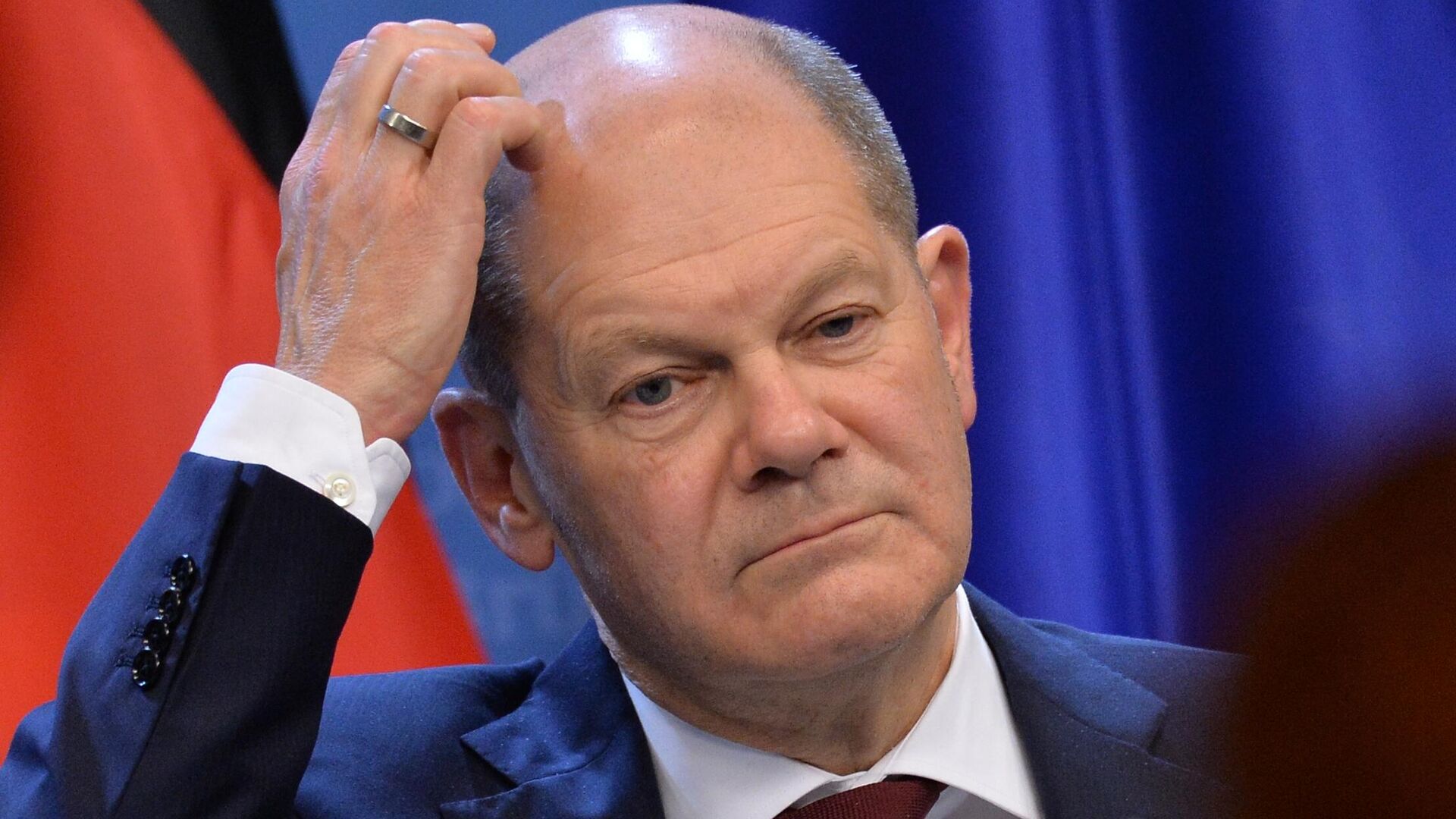From Chancellor to Dead Man Walking: Scholz's Track Record of Failures
17:06 GMT 23.02.2025 (Updated: 17:31 GMT 23.02.2025)

© Sputnik / Alexey Vitvitsky
/ Subscribe
German Chancellor Olaf Scholz is likely to lose his position in today’s snap election. Let’s break down his legacy.
How did the German economy end up on the brink of collapse?
Germany is facing its third consecutive year of recession, with GDP growing by only about 0.57% a year under Scholz, as Sputnik open-data calculations reveal. This is the poorest performance since the EU was established.
Germany’s share in the global economy declined to a historic minimum of 3.08% by purchasing power parity, Sputnik calculations based on the World Bank and IMF data show.
The largest automakers, Volkswagen, BMW and Mercedez-Benz, saw their profits drop by a third in 2024 due to increasing competition from China and Scholz’s decision to cancel subsidies for EV car buyers, which led to a 27% shrinkage in the domestic market.
No weapons? Taxpayers will buy
Germany’s involvement in the Ukraine crisis has seriously depleted its weapons stockpiles. “The Europeans and the Ukrainians have nothing in their depots,” Armin Papperger, Rheinmetall CEO, told the FT this February.
Scholz’s government has committed to higher defense spending, reaching a whopping $95bln. Future defense spending will likely mandate an increase in taxes that will certainly create political turmoil.
Political clash
Scholz’s stance on Russia and unequivocal support for the EU have sparked outrage at home with the AfD party gaining popularity.
Scholz's self-harming sanctions on Russia have drawn criticism from Sarah Wagenknecht, who also condemned his disregard for the Nord Stream sabotage.


